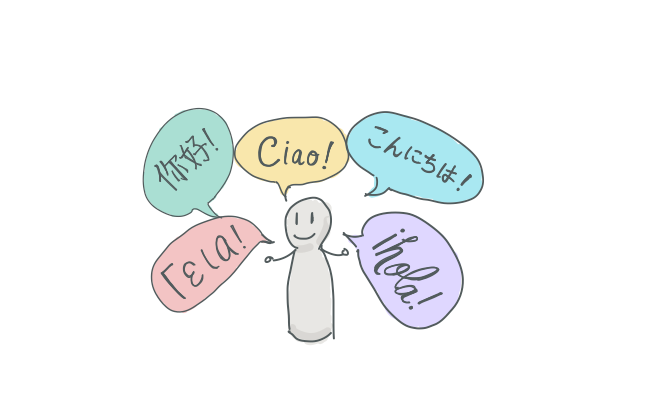Explorez les résultats de recherche web liés à ce domaine.
People who speak more than five languages, known as polyglots, light up in the “language network” of the brain when they listen to languages that they speak, with stronger responses to the ones they are most proficient in. However, according to a new study, when listening to their native ...
They argue that this limits studies to asking only about two languages and comparing someone’s “privileged” native tongue to a single non-native language, which is why they turned to polyglots. The researchers in the US used functional magnetic resonance imaging (fMRI) to scan the brains of 34 polyglots and published their findings in the scientific journal Cerebral Cortex. All of the participants had some proficiency in five or more languages but most began learning them as teenagers or adults.New research looked into how people who speak different languages process them in the brain.People who speak more than five languages, known as polyglots, light up in the “language network” of the brain when they listen to languages that they speak, with stronger responses to the ones they are most proficient in. However, according to a new study, when listening to their native tongues, the brain’s activity was either similar or dropped off compared to non-native languages they were fluent in.The authors plan to carry out further research on people who learned multiple languages at a very young age, including people who immigrated and became less proficient in their native tongue.


As your bond deepens and matures, your language skills should similarly progress.
As your bond deepens and matures, your language skills should similarly progress. When interviewing intercultural couples for my research, I found that one partner’s lack of investment in learning the other’s native tongue could be a source of tension or disappointment on both sides.Philosopher Ludwig Wittgenstein said: “The limits of my language mean the limits of my world.” The language of emotion is often deeply tied to one’s native tongue, rendering it inherently untranslatable. This awareness is important for intercultural couples, who may not have the vocabulary in a second language to express everything they feel. Continuous learning and growth in each other’s languages and cultures are essential for the vitality of an intercultural relationship.This approach encompasses not only language acquisition but also an appreciation for the customs, traditions, and worldviews associated with your partner’s culture. Learning each other’s languages can help strengthen your relationship.This not only creates a vibrant and inclusive atmosphere but also encourages guests to learn about and appreciate different cultures and feel at home. This open-minded approach can have a positive impact on children too. Growing up in an environment where multiple languages and cultures are celebrated, children develop a strong sense of cultural awareness, adaptability and empathy.
Learn a foreign language: online and offline language exchange, educational resources. Community of teachers and students from all around the world. Register for free and find a native speaker.
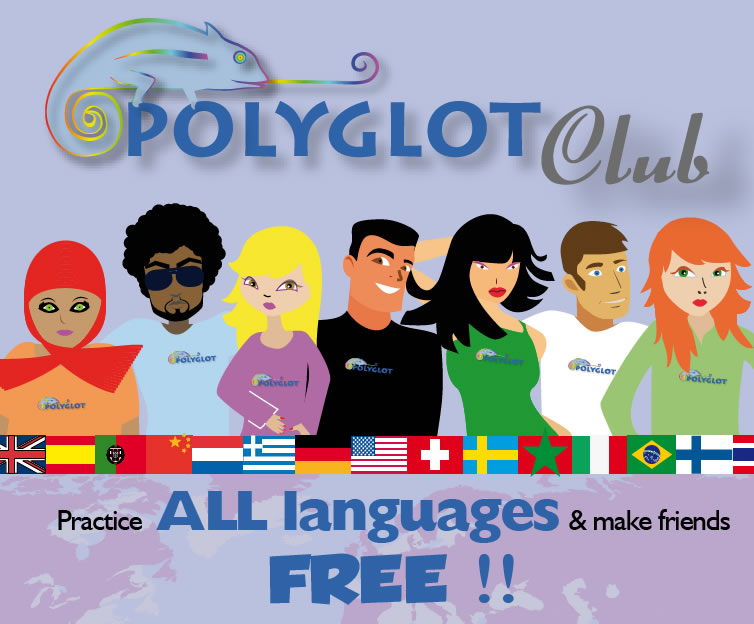

A language learning community might be just the thing you need to advance your language studies. We're covering seven awesome online language learning communities in this post. Click here to discover where you can commiserate, ask questions and make new friends who know exactly what you're ...
A language learning community might be just the thing you need to advance your language studies. We're covering seven awesome online language learning communities in this post. Click here to discover where you can commiserate, ask questions and make new friends who know exactly what you're going through!This allows members to bring attention to the highest quality content, saving everyone precious learning time. This community is particularly known for language exchange opportunities, meaning it’s a great place to find new native-speaking friends. Head to the language exchange page and you can filter potential pen pals by country, city and languages. Users who have been active recently will appear first, so you have a higher chance of getting a reply back. Beyond that, Polyglot Club also provides forums so users can ask language questions and have their writing corrected by native speakers.Perhaps the best part of Polyglot Club, however, is that you can also find in-person events. So, if you want to experience the benefits of a language learning community beyond your screen, Polyglot Club can help you figure out when and where to meet up with other learners and native speakers in your area.The forum is for anyone interested in learning a language, whether they’re an absolute beginner, a raving polyglot or a person who’s just plain interested in linguistics.

Arieh Smith, a New York City-based polyglot who runs the YouTube channel Xiaomanyc, talks language-learning with Big Think.
Get Big Think for Your Business. Enable transformation and drive culture at your company with lessons from the biggest thinkers in the world. Learn More → ... Arieh Smith, a New York City-based polyglot who runs the YouTube channel Xiaomanyc, talks language-learning with Big Think.So it was admittedly encouraging to hear that Arieh Smith, a New York City-based polyglot who runs the popular language-learning YouTube channel Xiaomanyc, didn’t leave his first foreign language classes with much proficiency either.Learning a new language isn’t only for those who are smart or linguistically gifted; it is something virtually anyone can do with consistent effort. ... Copy a link to the article entitled http://A polyglot explains the tips (and myths) of learning new languagesBig Think spoke with Arieh Smith, a New York City-based polyglot who runs the popular language-learning YouTube channel Xiaomanyc, about the basics of learning new languages.
I like learning languages. I really do. I grew up bilingual and have been speaking two languages until the age of 6. One more language entered my life when school started. And by the time I turned…
I like learning languages. I really do. I grew up bilingual and have been speaking two languages until the age of 6. One more language…Always remind yourself of what you can achieve by learning the language when you feel like giving up. The reason can be any — from cognitive and entertaining (“I want to be able to see movies in the original and understand them”) to quite serious ones (I want to get a job in a foreign company, move to another country, etc.). Conduct at least a few classes with a tutor Most polyglots claim to have studied languages on their own.Every single polyglot will tell you that the best way to hone your knowledge is to communicate. They also point out that conversational practice is the best way to memorize new grammatical constructions and words. Thus, you do not memorize them on purpose but learn during an interesting conversation. Learn phrases, not words In order to be able to speak a foreign language, you don’t just need to know the words and have a rich vocabulary, but also to be able to use those words correctly in a conversation.Enjoy the process No polyglot will tell you that learning a language is boring. One of the main secrets of their success is genuine interest. Enjoy not only the idea that you can speak a foreign language but also the process of learning. Fortunately, thanks to a variety of teaching methods, nowadays, learning can be a fun hobby.


Becoming a polyglot is the ultimate dream of people who are passionate about language learning. But the idea of learning multiple languages at the same time may be overwhelming for you. If you think polyglots are special people with some super cognitive skills and not everybody can become a ...
Becoming a polyglot is the ultimate dream of people who are passionate about language learning. But the idea of learning multiple languages at the same time may be overwhelming for you. If you think polyglots are special people with some super cognitive skills and not everybody can become a polyglot,But the idea of learning multiple languages at the same time may be overwhelming for you. If you think polyglots are special people with some super cognitive skills and not everybody can become a polyglot, you’re so wrong! Anyone who is motivated and determined to learn foreign languages can become a polyglot.The word polyglot is derived from the Greek words “poly” meaning many and “glōtta” meaning language. So, polyglot means someone who has learned multiple languages and has the ability to communicate fluently using these foreign languages.But if you apply these tips in your multilingual learning routine and have enough motivation and patience, there is nothing to stop you from becoming a polyglot! If you are looking for a language learning app to learn your target language while having fun, check out Lingopie! ... Lingopie is a content-based language learning app that offers 9 languages. Thanks to Lingopie, you can learn a foreign language by watching TV shows and movies.

Learning multiple languages has always fascinated me. The idea of being able to communicate in someone else’s native tongue, to understand their culture and way of thinking, is a journey full of surprises and rewards. My path to becoming a polyglot — someone who knows and uses several languages ...
Learning multiple languages has always fascinated me. The idea of being able to communicate in someone else’s native tongue, to understand their culture and way of thinking, is a journey full of surprises and rewards. My path to becoming a polyglot — someone who knows and uses several languages — has been both challenging and incredibly fulfilling.Learning multiple languages has always fascinated me. The idea of being able to communicate in someone else’s native tongue, to understand their culture and way of thinking, is a journey full of…The Challenges, Joys, and Unexpected Adventures of Embracing New Languages and Cultures on the Road to MasteryFlashcards, language exchange meetups, and immersion experiences in countries where the languages were spoken were all valuable. I also found that teaching others the languages I was learning helped reinforce my own knowledge. The most rewarding aspect of becoming a polyglot is the ability to connect with people in their own language.
An article by Tom Thompson, a polyglot who has studied twenty or so different languages, about his language learning experiences.
What followed was a scholarship path to college, a junior year abroad, graduate school and more foreign trips, interesting jobs, and even a wonderful wife whose first language, Spanish, are all anchored by that teacher's now seemingly incredible effort to simply encourage one of her students. My language classes and travels have left an indelible lesson that goes well beyond language fundamentals. Once learned, nothing can take away my collection of foreign languages.Certainly every language has a unique flow and rhythm, and often even a special body language, as Edward Hall once wrote, that puts words and motion together to paint a particular cultural picture. I don't know much about any of these theories. One thing for certain is that if you're bored or unhappy with your life, just learn another language, and you'll be fine.Writing systems | Language and languages | Language learning | Pronunciation | Learning vocabulary | Language acquisition | Motivation and reasons to learn languages | Arabic | Basque | Celtic languages | Chinese | English | Esperanto | French | German | Greek | Hebrew | Indonesian | Italian | Japanese | Korean | Latin | Portuguese | Russian | Sign Languages | Spanish | Swedish | Other languages | Minority and endangered languages | Constructed languages (conlangs) | Reviews of language courses and books | Language learning apps | Teaching languages | Languages and careers | Being and becoming bilingual | Language and culture | Language development and disorders | Translation and interpreting | Multilingual websites, databases and coding | History | Travel | Food | Other topics | Spoof articles | How to submit an articleFor each language you learn and try to speak, there's the chance that it will motivate your listener to tell you how he, or she, sees things.
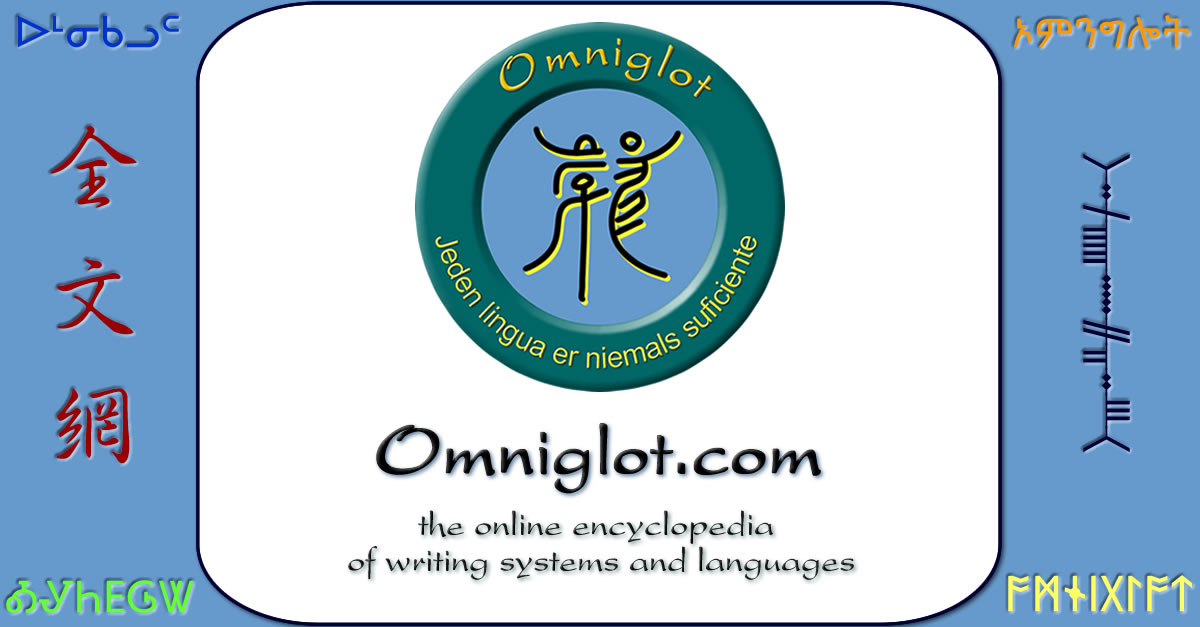
Polyglots, people who are wise in the ways of foreign tongues, are uniquely dedicated people. We’ve taken it upon ourselves to scour the far reaches of the internet to find the best blogs written by polyglots. They are chock-full of compelling material, lessons learned firsthand and specialized learning tricks. By reading about the experiences of these clever folks, you’ll be sure to avoid major mistakes and pitfalls while delivering a massive boost to your overall language ...
Polyglots, people who are wise in the ways of foreign tongues, are uniquely dedicated people. We’ve taken it upon ourselves to scour the far reaches of the internet to find the best blogs written by polyglots. They are chock-full of compelling material, lessons learned firsthand and specialized learning tricks. By reading about the experiences of these clever folks, you’ll be sure to avoid major mistakes and pitfalls while delivering a massive boost to your overall language learning skills.What's the secret to becoming a polyglot? These polyglots have all had unique language learning journeys and they're sharing how they've gotten where they are with the rest of the world. Check out all the brilliant information, advice and tips on these polyglot blogs!Some of the posts feature her travel experiences and many include music videos and clips from her TV appearances and presentations as well as interviews with fellow polyglots. Among the blog category topics are the benefits of multilingualism, multilingual women and how to learn languages with songs and other media. Note: The blog was last updated in 2021. While there aren’t any super easy shortcuts to attaining real fluency in a foreign language, Olly Richards’ inspirational blog posts cover topics and tips designed to get you there quicker.There are priceless tips, valuable lessons, powerful strategies and expert advice that are drawn from his own experiences as well as conversations with other polyglots. Sam’s writing style is fresh and energetic with a nice lightness of touch. There is a lot of good material here with an archive that goes back to December 2012. Diving into the website will lead to such topics as how to think in a foreign language, memory strategies to supercharge your learning and what actors can teach us about learning a foreign language.
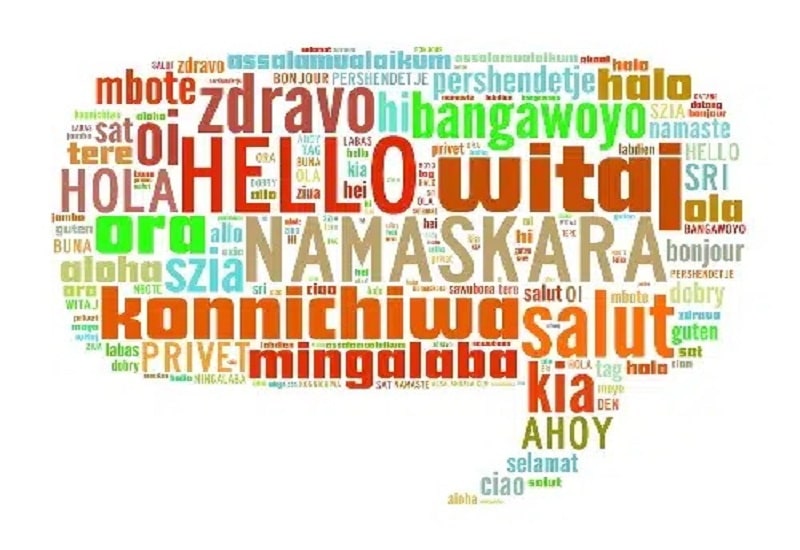

Every technique I use to learn languages quickly and effectively.
People often ask me what the secret is to learning foreign languages quickly and effectively. The thing is, there is no super secret method to learn a foreign language. You don’t need any fancy…The thing is, there is no super secret method to learn a foreign language. You don’t need any fancy software, expensive textbooks, or magical pills. Polyglots, language learning enthusiasts, and people around the world achieve success mainly through the use of a few simple strategies.An example of one of my language learning notebooks. This is the one outlier of this list, as it is not something other polyglots typically recommend. Whenever I am studying a foreign language, I write a ton, and I find it very helpful.Not only does it help me stay focused, as it’s harder to space out when you’re physically writing something down, but I also find it super motivating. When I see my notebook filled up with walls of text that I’ve copied down throughout my learning process, it gives me a sense of accomplishment and progress. And there you have it! The above six activities are all that I do when I study foreign languages.
We cannot provide a description for this page right now

A lover of Middle-Eastern and African ... Asian tongues as well. Check out his series called the “Teen Polyglot Challenge,” which was a contest Doner hosted on his YouTube channel. The entrants were teenagers who had a month to learn a brand-new language and then submit videos showcasing their new skills. This series, as well as the fun and cheeky personal videos that Doner posts of himself chatting with friends in foreign languages, ...
A lover of Middle-Eastern and African languages, Doner knows his way around quite a few European and Asian tongues as well. Check out his series called the “Teen Polyglot Challenge,” which was a contest Doner hosted on his YouTube channel. The entrants were teenagers who had a month to learn a brand-new language and then submit videos showcasing their new skills. This series, as well as the fun and cheeky personal videos that Doner posts of himself chatting with friends in foreign languages, make his channel fun and engaging to watch.If you can’t seem to get enough of Doner’s videos, never fear.Wang likes to film chats with people he meets from around the globe, sharing adventures in the speaker’s native tongue. After a few of his videos, you’ll strangely feel like you have a new friend you’ve never met. But you’re forewarned, his videos are for hardcore would-be polyglots, because hardly any of his videos are in English! Recommended Videos: How to learn languages: Daily routine part 1 of 5, How I learn languages: first stepsPolyglot YouTubers sharing their secrets, tricks and experiences can be both inspirational and immensely helpful if you're on your own path to becoming a polyglot. Learning languages can be rewarding, but it's a lot of work, so check out this post to hear what these famous polyglots recommend to make it easier.Arguelles has also uploaded many of his lectures, which give viewers a taste of the academic side of language learning. Learn more about Alexander on his informative website. Recommended Videos: The Price of Polyglottery: The Case for Establishing a Polyglot Institute, On the Difficulty of Learning Foreign Languages
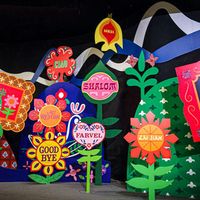
You have to read, write, and speak ... mother tongue ... Then people get into evaluation battles. Evaluation is important and something I talk about in How to Become Fluent in a Language. In sum, you get to decide what being a polyglot means, and just need to be aware that others will judge you no matter which definition you come up with. It’s a good policy to make sure you only hang out with people who support your language learning goals, no ...
You have to read, write, and speak 4 more languages than your mother tongue ... Then people get into evaluation battles. Evaluation is important and something I talk about in How to Become Fluent in a Language. In sum, you get to decide what being a polyglot means, and just need to be aware that others will judge you no matter which definition you come up with. It’s a good policy to make sure you only hang out with people who support your language learning goals, no matter how many languages you’re learning.Want to know how to become a polyglot? Becoming multilingual doesn’t have to be difficult. This article gives you 11 easy tips to get there.The point I’m making is that no one “owns” the definition of what makes a polyglot. You’ll find all kinds of different definitions: You have to speak 2 more languages than your mother tongueChances are you can pick up that many words and read that many books within 3 months if you apply yourself. It’s all about using the right learning techniques and scheduling your time. Now, some people suggest that you read books in your target languages you’ve already read in your mother tongue.
This tool is perfect for language learners who want to practice writing in the target language. With this tool, learners can type text and get a translation, as well as pronunciation and syntactic highlighting. It allows learners to: Improve their ability to write and understand a foreign language.
This tool is perfect for language learners who want to practice writing in the target language. With this tool, learners can type text and get a translation, as well as pronunciation and syntactic highlighting. It allows learners to: Improve their ability to write and understand a foreign language.We are pleased to offer you a comprehensive and user-friendly platform for learning foreign languages. Our site is designed to help you learn a new language quickly and effectively.One of the main benefits of our site is the addition of translation of words and phrases. This feature allows you to quickly and easily translate any word or phrase you come across while learning a new language. With this feature, you can focus on learning new vocabulary and grammar without getting bogged down by unfamiliar words.Our platform also offers pronunciation help so you can practice speaking the language with confidence. Our syntax highlighting feature also helps you understand the structure and grammar of the language, making it easier to learn and retain new information.

Polyglots stay motivated because they learn using the most effective methods which reflect back to them that they’re making progress. This makes language learning a lot easier. You cannot learn a language in 15 minutes per day like some apps and services claim. Rather, the amount of time it takes to learn a language depends on the language you’re trying to learn. Its difficulty, relationship to your native tongue ...
Polyglots stay motivated because they learn using the most effective methods which reflect back to them that they’re making progress. This makes language learning a lot easier. You cannot learn a language in 15 minutes per day like some apps and services claim. Rather, the amount of time it takes to learn a language depends on the language you’re trying to learn. Its difficulty, relationship to your native tongue and the ability to effectively use it all play a role in the time it takes to master a second language.Ever wondered how polyglots really learn languages? We’ll tell you 5 of the best methods of polyglots that you can use to accelerate your language learning.We’ll detail precisely what a polyglot is, share their wisdom and touch on their keys to language learning success. Heard the term ‘polyglot’ but don’t quite understand what it means? A polyglot is an individual who is fluent in not one foreign language, not two foreign languages, but several (generally three or more) foreign languages.This is great news for us because it proves that anyone at any time can learn and become fluent in a foreign language. Polyglots are fascinated by words and languages. They’re motivated by and find enjoyment in language learning. Further, they harness the power of our natural ability as humans to learn and adapt.

They argue that this limits studies ... native tongue to a single non-native language, which is why they turned to polyglots. The researchers in the US used functional magnetic resonance imaging (fMRI) to scan the brains of 34 polyglots and published their findings in the scientific journal Cerebral Cortex. All of the participants had some proficiency in five or more languages but most began learning them as teenagers ...
They argue that this limits studies to asking only about two languages and comparing someone’s “privileged” native tongue to a single non-native language, which is why they turned to polyglots. The researchers in the US used functional magnetic resonance imaging (fMRI) to scan the brains of 34 polyglots and published their findings in the scientific journal Cerebral Cortex. All of the participants had some proficiency in five or more languages but most began learning them as teenagers or adults.New research looked into how people who speak different languages process them in the brain.People who speak more than five languages, known as polyglots, light up in the “language network” of the brain when they listen to languages that they speak, with stronger responses to the ones they are most proficient in. However, according to a new study, when listening to their native tongues, the brain’s activity was either similar or dropped off compared to non-native languages they were fluent in.The authors plan to carry out further research on people who learned multiple languages at a very young age, including people who immigrated and became less proficient in their native tongue.
The word “polyglot” (pah-lee-glot) ... tongues (languages).” It describes someone who is highly fluent in several languages. “Polyglot” has a few definitions and can be used as one of three different parts of speech, though its general use refers to having knowledge of multiple languages.
The word “polyglot” (pah-lee-glot) comes from the Greek polyglōttos, meaning “multiple tongues (languages).” It describes someone who is highly fluent in several languages. “Polyglot” has a few definitions and can be used as one of three different parts of speech, though its general use refers to having knowledge of multiple languages. Polyglots often learn multiple languages at once, both as a challenge and because they’re fascinated by the way languages work.But taking on the challenge of a new language is only part of the thrill for a polyglot. These learners love immersing themselves in the culture surrounding a language, whether that means living in a country to learn to local language or reading literature in their new tongue.What is a polyglot, and how do you become one? Learn more about this type of language master and how they differ from other language learners.They typically have a gift for linguistics and dialects, making it easy for them to learn languages quickly. The number of languages spoken by a polyglot is up for debate. Since poly means “many,” a person just needs to know many languages to be considered a polyglot.

Looking for motivation on your language learning journey? Check out what these famous polyglots have said about the best ways to learn a language.
These people are known as polyglots. These brilliant multilinguists have their own self-made origin stories — stories driven by innate curiosity. At some point in their lives, they were bitten by the proverbial spider: a natural love for languages that made them want to learn more.Polyglots are certainly rare and interesting people: only about 3% of the world’s total population can speak four or more languages. Even if you just want to learn English online or know a few words in another language, it might help to get advice from people who have done it multiple times over.Their advice will put fire in your belly — whether you’re learning your second, third, or eighth language. Languages spoken: English (native), French, Spanish, Welsh, German, Macedonian, Swedish, Italian, Serbian, Bosnian, Croatian, Portuguese, Czech, Catalan, Russian, Dutch, Romanian, Albanian. Richard Simcott is perhaps not just known as a polyglot…Using her language learning experience, Lýdia mentors people to fluency by helping them focus on enjoyable methods that work for them. Lýdia is also respected for creating and running the annual Polyglot Gathering.

One ice breaker I like to tell people is that I can speak eight different languages — and flirted with two others. After all, it’s a feat I’m proud of and required over a decade of study and…
One ice breaker I like to tell people is that I can speak eight different languages — and flirted with two others. After all, it’s a feat…I would also recommend using this reserved time to review the material you have studied in the past. Learning an entirely new language is a slow process, especially if it’s a language very different from your native tongue or from other languages you already know.Whether you’re wanting to pick up a new language or are on-track to becoming a polyglot yourself, here are a few tips I’ve picked up on my language-learning journey.The phrase and use of Keigo, or honorific speech, is foreign to a native English speaker unaware of Japanese cultural norms, but misuse of either could severely offend a native listener. So, it pays to know about Japanese culture before charging into the conversations! The easiest way to learn about how culture shapes a given language is research.
